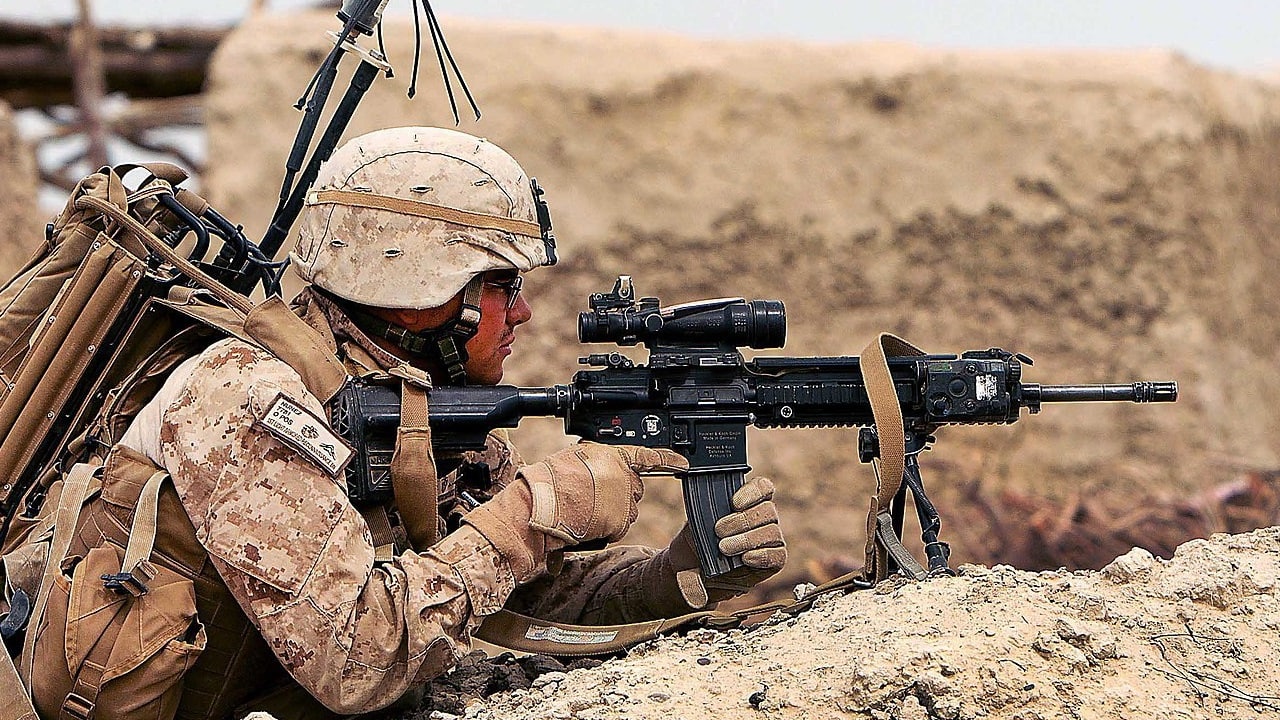Daniel Davis

The Special Inspector General for Afghan Reconstruction (SIGAR) released a report on Monday that laid bare many of the reasons for the spectacular collapse in August 2021 of America’s 20-year war in Afghanistan. The 148-page report provides exhaustive evidence of the many and compounding reasons for our failure, but the one cause that was not mentioned may have been the most critical: a whole-of-government arrogance in Washington.
It is crucial to understand that the debacle of August 2021, when the Afghan government and military dissolved before the Taliban’s advance — and our two-decade war of frustration crashed into inglorious failure — was not merely the result of U.S. President Joe Biden bungling the withdrawal. Our disaster started within months of the war’s onset and persisted all the way to the final exit.
The new SIGAR report, signed by Inspector General John Sopko, continues the exceptional analysis and reporting of ground truth in Afghanistan that SIGAR began with their first report in October 2008. In that report, SIGAR’s first Inspector General, Maj. Gen. Arnold Fields, ominously warned that “the task of reconstruction in Afghanistan is an exceedingly difficult and complex issue.” That message, which if anything was an understatement, appears to have been vastly misjudged by every administration from George W. Bush through to Biden.
There are few who argue with Bush’s original decision to use military power in October 2001, as the Taliban had willingly provided aid and comfort to Osama bin Laden, the self-confessed architect of the 9/11 terrorist attacks against the United States. Bush’s initial military mission was appropriate, measured, and achievable: “These carefully targeted actions are designed,” the president said on Oct. 7, 2001, “to disrupt the use of Afghanistan as a terrorist base of operations, and to attack the military capability of the Taliban regime.”
That mission was effectively accomplished by the spring of 2002, when the Taliban had been destroyed as a viable political entity and al-Qaeda was so severely damaged that it never regained its pre-war power. Bush had a golden opportunity in the summer of 2002 to order an end to the military mission, withdraw the troops, and transition to a diplomatic and humanitarian mission. There was no armed or organized opposition. The Afghan people themselves could have formed a new government of their choosing, in line with their historical and cultural norms.
There was never a better, more secure, or more ideal set of circumstances for a country with time and international backing to form a new government than what existed that summer. But here is where Washington’s hubris entered the picture. Instead of trusting these people to do the hard work necessary to govern themselves, we decided they were not capable and needed our help to get there.
First, we kept our military force on the ground and directed every aspect of the forming of a government in Kabul. Americans took the lead in designing the country’s Constitution — one more in line with American culture than Afghan culture, helping to ensure its eventual failure. Unfortunately, that was only the first major failure. Others immediately followed.
Many in the Western world wanted to prove that democracy — in line with Western ideals and values — could be built anywhere and was in fact based on “universal values,” and they were eager to see their theories proven in Afghanistan. My first combat tour to the country came in 2005-2006. During that time I observed that the U.S.-led military mission was joined with numerous civilian agencies, USAID, and international aid groups — but their focus was on helping the Afghan government, military, and civil society to behave more like a Western democracy.
Apparently aware the effort was foundering, Bush changed the mission a year after my tour ended. On Feb. 15, 2007, Bush addressed the nation and gave a rousing speech, frequently interrupted by applause, on the future of Afghanistan. Bush announced he was asking Congress for $11.8 billion “to help this young democracy survive.” Then he made the fateful decision: “I’ve ordered an increase in U.S. forces in Afghanistan. We’ve extended the stay of 3,200 troops now in the country, for four months, and we’ll deploy a replacement force that will sustain this increase for the foreseeable future.”
When I returned for my second combat deployment in Afghanistan in 2010-2011, I was shocked by how much the country had deteriorated since my previous deployment. It was painfully clear that our policies had not merely failed to improve the situation, but had made things worse. I observed then that our military and civilian leaders were being dishonest about conditions, always promising that with a new strategy or new approach things would be different. They never were.
Arrogance prevented our leaders from acknowledging patent reality, directly laying the foundation for our military failure.
In his just-released report, Sopko details the many mistakes made by the Obama, Trump, and Biden administrations, all of which seemed to build on each other, and I highly recommend reading that entire report. But the common denominator to all the failures Sopko highlights in the military, diplomatic, economic, and governance fields, was the hubris of American policymakers and generals.
Their stubborn refusal to recognize the plans they had made were faulty, the turning of a blind eye to the reality that their plans weren’t succeeding, and their collective unwillingness to admit the truth, directly contributed to the 20-year debacle in Afghanistan. If we as a people fail to learn that lesson, if we fail to hold any military or civilian leader accountable for such avoidable failure, the chances are high we will see a harmful repeat in the future.
No comments:
Post a Comment